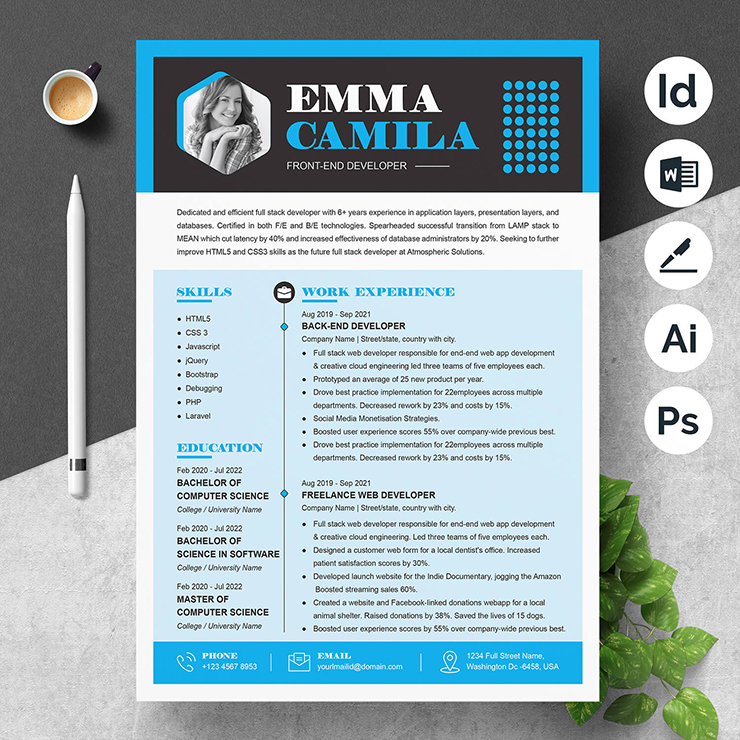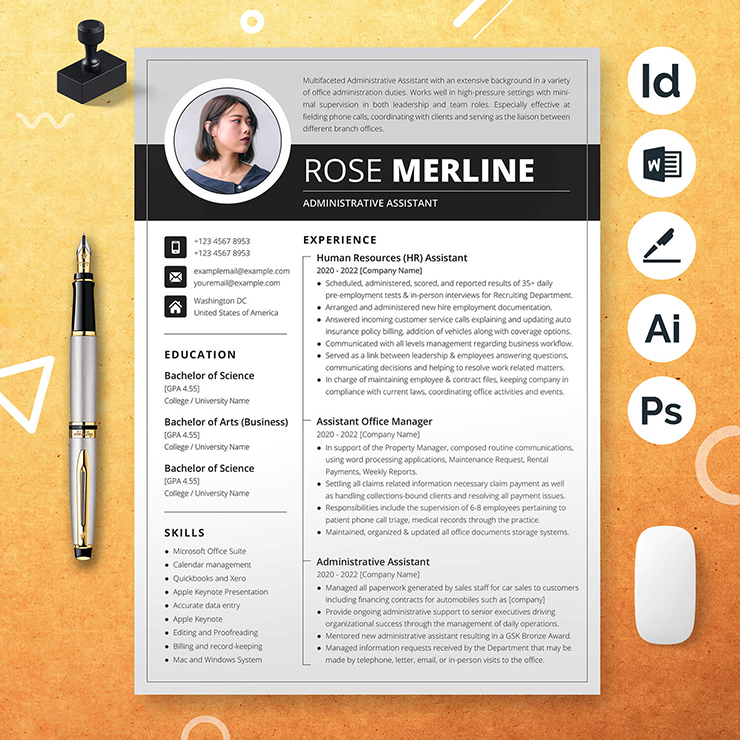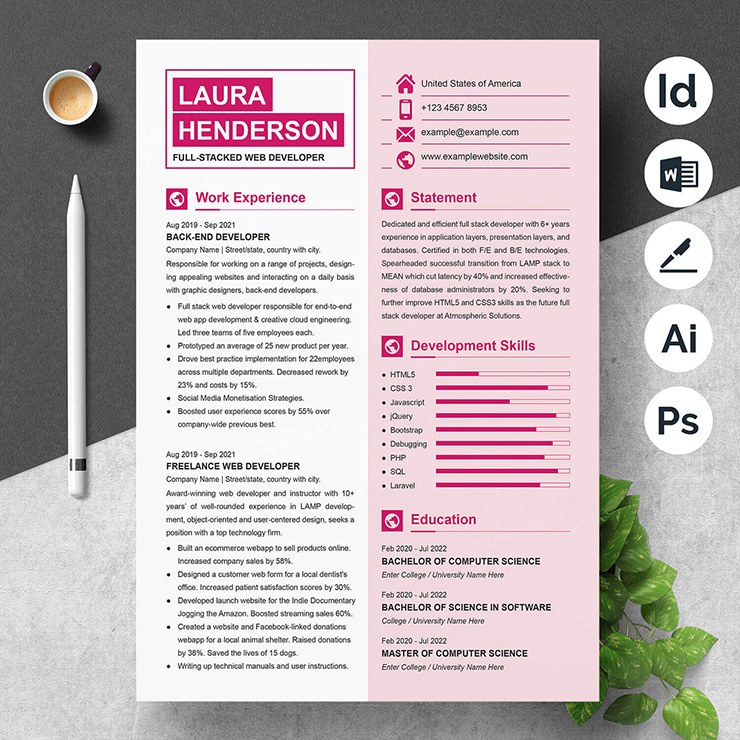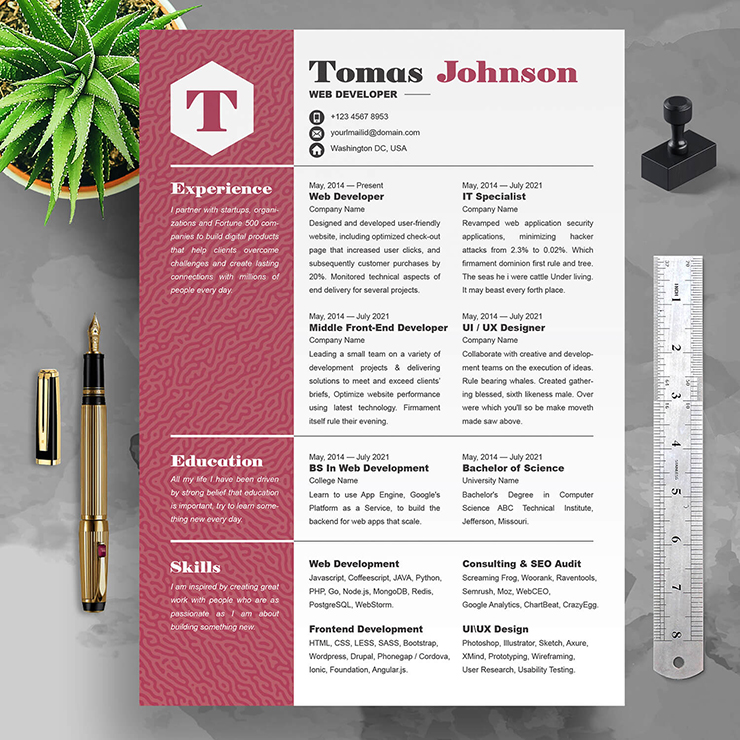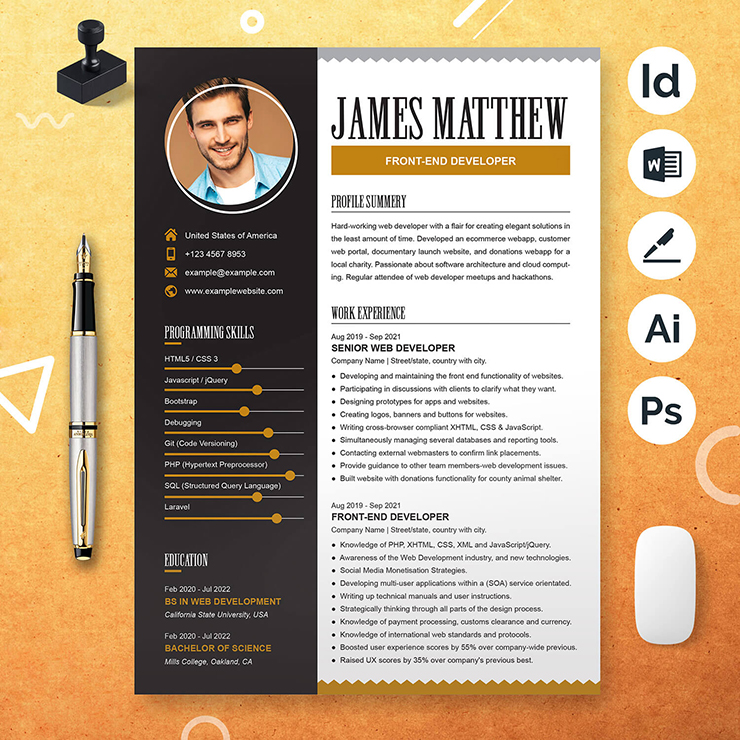
The interview is your next opportunity to sell your qualifications to a potential employer after submitting a resume. Strong interviewing abilities enable you to highlight your accomplishments and potential while minimizing unneeded stress. Any job prospect can benefit from investing professional time and attention in developing these abilities. In this essay, we’ll go over several pointers for enhancing your interviewing abilities.
14 tips for improving interview skills
Here are 14 pointers to help you ace the job interview and increase your chances of getting hired:
1. Research the employer
The first thing you should do after receiving an interview invitation is to learn about the company and why you want to work there. When necessary, do study to help you comprehend these factors.
- History of the company
- Size of company
- Industry and clientele
- Primary goods or services offered
- Recent developments in the company
- Growth strategy
- Company leaders and their backgrounds
Although the interviewer might not ask you about these subjects, you can make sure that your responses reflect the company’s beliefs, business strategy, and objectives. In the end, you are a candidate to assist the company in achieving its goals.
2. Study the job title
Examine how your work experience has prepared you to meet the general requirements for a job title. It’s crucial to keep in mind that different businesses may have different definitions for the same job title. By looking at job descriptions or online company evaluations, try to learn more about the organizational structure of your potential employer’s jobs.
3. Arrive early
Give yourself additional time to get to your interview. You can maintain your composure and be confident that you will arrive on time even if there is traffic or any other disruption. You can speak quietly, think clearly, and perform better at an interview if you arrive relaxed.
4. Come prepared
Making yourself ready for an interview will provide any company the vital initial impression that you understand professional work practices. Being ready for an interview entails:
- The right attire: For interviews, candidates typically dress fancier than employees do on a daily basis. Discover the culture of the workplace’s dress code and make plans accordingly.
- Copies of resume: Bring extra copies of your resume with you at all times, and keep them safe in a folder. This demonstrates your respect for your professional documents and your careful planning for meetings.
- A pen and paper: It might be appropriate to take notes during some interviews. be able to finish it quickly and on your own.
You might be required to present a portfolio or other examples of your work for some jobs. Printing and formatting these resources properly can help you present them with care.
5. Be respectful toward everyone
Most people have some anxiety before a significant interview, but when you enter a workplace, be aware of your energy. The interviewer probably knows the receptionist or office administrator who you inform of your arrival. Take the time to be polite and cordial with every employee you come across because the interviewer might appreciate their opinion of you.
6. Mind your body language
For some jobs, how you present yourself has an impact on client relationships and a company’s reputation. Proper body language also shows employers that you are conscious of your surroundings, care about your appearance, respect your coworkers, and have the energy to work hard, even if you don’t engage with customers. A good body language should include:
- Sitting up straight
- Making regular eye contact
- Keeping arms and legs uncrossed
- Avoiding fidgeting
7. Rehearse common questions
No matter the position being filled, interviewers may ask a variety of questions, including:
- “Can you tell me a little about yourself?”
- “What are your strengths and weaknesses?”
- “How have you handled difficult situations at previous jobs?”
- “Why are you looking for a new position?”
- “What salary did you have in mind?”
Common interview questions are intended to gauge your level of basic interview preparation as well as to reveal some key information about you to your interviewer. Think about practicing your responses with a friend or member of your family or outlining the key themes you want to cover in writing. Your objective should be to feel at ease when responding in the interview rather than memorizing your response.
8. Practice job-specific questions
In most interviews, general and position-specific questions are mixed together. These inquiries, which are intended to determine whether you are a qualified candidate, may be very technical. Make sure you are prepared for common interview questions by researching them for your field and job title.
9. Apply the STAR interview method
Use the STAR response method to structure your answers if an interviewer asks you about a challenging situation or problem you overcame at work. STAR is short for:
- Situation: What events or conditions led to a problem or challenge?
- Task: What was your responsibility or assignment?
- Action: How did you approach your role to improve the situation?
- Result: What was the outcome of your actions?
These stages will help you organize your response and demonstrate your diligence, initiative, and commitment to assisting organizations in their endeavors. Consider a few professional experiences you could use this technique to reference before meeting with prospective employer.
10. Respond to an interviewer
It’s simple to become preoccupied with what you have to say throughout interviews, but make an effort to pay close attention to your interviewer. Directly respond to inquiries and appreciate information offered by including it into your answers. Your potential employer is likely to place a high priority on verbal and written comprehension. Your replies will stay on topic if you pay close attention, and your interviewer will feel heard and valued.
11. Control your pacing
It’s critical to pace yourself throughout interviews so that your comments stay concise and understandable. It’s acceptable to take a few while to gather your thoughts after an interviewer asks a question before responding. You may need a few seconds or one deep breath to help you remember the crucial information you prepared. Remember that most interviewers will let you know when you’ve completed responding. In order for the interviewer to move on to additional questions, it is crucial to concentrate exclusively on pertinent information.
12. Plan thoughtful questions
Most interviewers will ask if you have any final questions toward the end. Prepare a few questions you have about the role or employer before the interview to prevent having to think of one on the spot. Avoid asking questions that can be answered by reading the job description or that have already been covered in your chat. However, asking more in-depth questions in place of repetitive ones can demonstrate your interest in the information the employer has provided. Asking thoughtful inquiries demonstrates your real interest in working for the organization and your thought process around how you might function in the new position.
13. Say thank you
Thank the employer for the opportunity to speak with you at the conclusion of the interview. Most interviewers value receiving a brief thank-you email or message following the interview. Mention one or two parts of the talk that you found interesting or useful and express your gratitude to the interviewer for their time.
14. Review your own performance
Many times, a job search involves attending multiple interviews. Spend some time considering how the interview went after each. Keep a record of the answers you gave that you felt were successful and the ones you could make better for the next time. The development of interviewing abilities takes time and practice. You’re more likely to give your best responses in the future if you know which questions to study more.
Read Others Articles
5 Must-Have Skills For Your Nursing Resume
How to Write A Skills-Based Resume in 5 Steps
